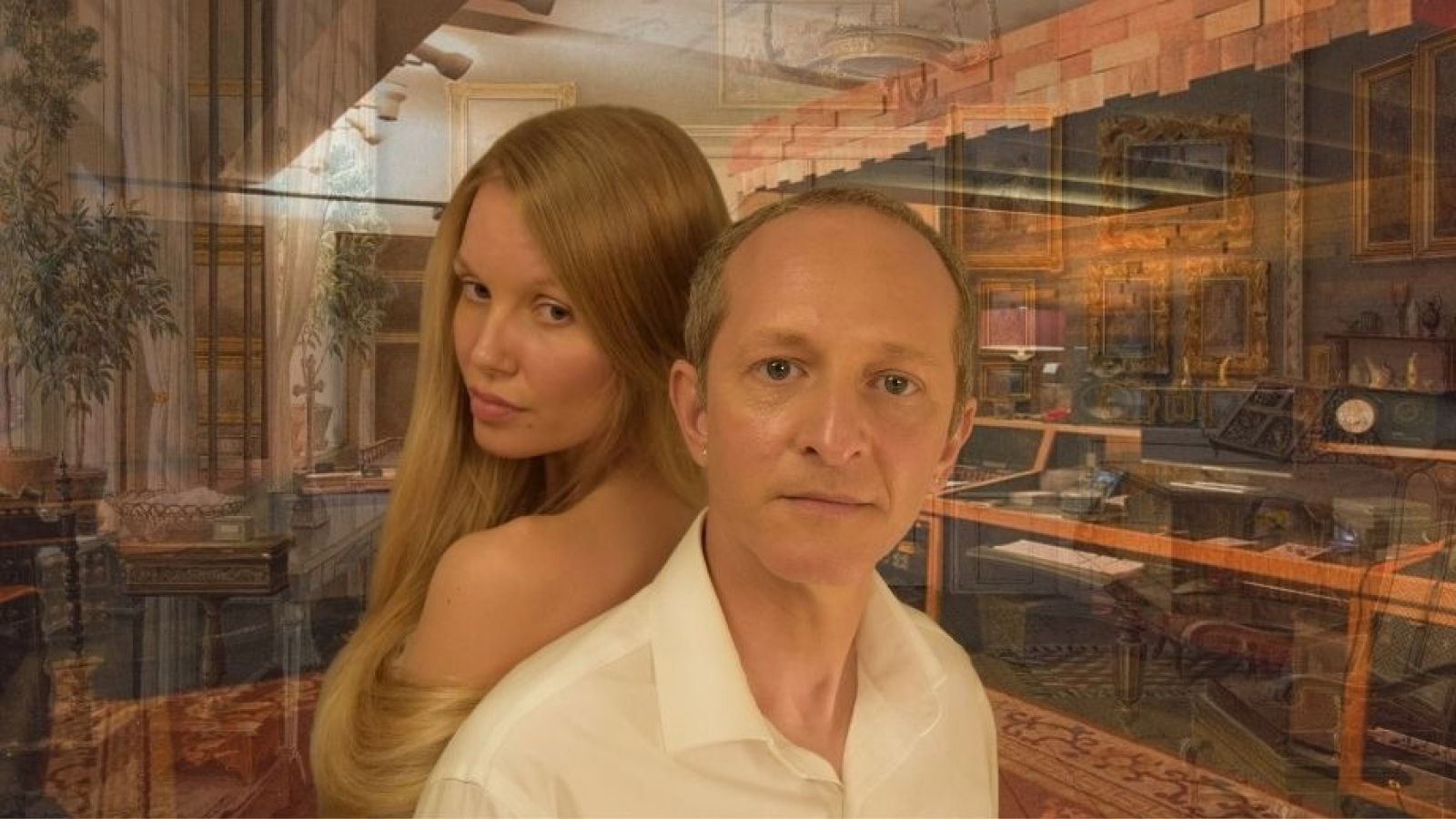ANU composition duo score hit Australian film

Professor Ken Lampl with Ms Kirsten Axelholm. Image: supplied.
By Evana Ho
The convenor of Australia’s only undergraduate program in film and video game composition is one of the two ANU-based composers behind the new Australian sci-fi film 2067.
Professor Ken Lampl, former head of the ANU School of Music, composed the score and soundtrack with his frequent collaborator Kirsten Axelholm. The film opened in the United States in early October, then headlined the Adelaide Film Festival in its Australian debut. It has received attention from major international outlets, with write-ups in Variety, Hollywood Reporter, Roger Ebert, The Guardian, and Gizmodo.
According to Professor Lampl, 2067 was the #1 sci-fi film on iTunes for a couple of weeks, and for a while the #3 most screened movie on iTunes.
“It was really exciting,” Professor Lampl says. “What happens normally is, you’re competing with Dune, you’re competing with The Dark Knight. The fact that nothing was being released allowed us to really find a place in the marketplace.”
Professor Lampl explained that the assignment came about after the duo worked on the Canberra horror film The Furies. The producer Lisa Shaunessy, liked their score for The Furies, and introduced them to her husband, 2067 director Seth Larney.
“Seth and I are just science fiction geeks. So we were just geeking out on all the science fiction movies we love and their scores,” Professor Lampl, who studied under John Williams, recalls happily. “We talked a lot about Blade Runner, the Star Wars movies, the new Blade Runner.”
“So when it came time to do this thing, the kind of vocabulary he was talking about, I knew very, very close to what he wanted.”
Armed with the script and some of the artwork for the movie, Professor Lampl and Ms Axelholm produced several demos a year before filming began.
“What was great was, the demos Seth liked, he played that for actors on the set – he brought that into the production,” Professor Lampl says. “He edited the movie to the music that we wrote, a lot of it. Which was really nice, because usually they don’t bring you in until the very end, once it’s been shot already.”
Keen listeners might recognise the synthesiser in the opening credits to 2067, which was the same Yamaha CS-80 synthesiser used in Blade Runner 2049. That’s not a coincidence.
“A lot of filmmakers are always giving nods to their favourites; Seth is giving nods to all the great science fiction movies in 2067. And in the score, we’re giving nods to some of the great science fiction scores,” Professor Lampl says. “We thought it would be a nice homage to do the opening on that particular synthesiser.”
The score consequently features a mix of virtual instruments such as the Yamaha CS-80, and violin and cello solos performed by members of the Canberra Symphony Orchestra – which were recorded at the ANU School of Music recording studio.
“Nothing displays and characterises human emotion like live musicians in an orchestra,” Professor Lampl says. “So it was a very interesting blend of orchestral music for a lot of the heart and drama, and synthesiser and sound design effects for the background.”
He added that an interesting aspect of 2067 was that the director wanted most of the sound design to be in the score, and for very little of the sound design to come from a sound designer.
“When the characters go into different places, part of the sound design for the score would be the ambience of that particular place,” he explained. “There are times where, y’know, there’s an underground nuclear reactor blowing up, you need a certain sound design and music that matches, versus when they’re outdoors and are in a forest.”
“So the sound design and music had to work hand-in-hand in order to make the environments come alive inside the music.”
Sony Music recognised the mastery of Professor Lampl and Ms Axelholm’s scoring, releasing it on their label Milan Records, which specialises in film scores and soundtrack albums. The soundtrack has also been named one of the top film scores of 2020 by Film Music Magazine.
Professor Lampl emphasises that Sony’s support is “a really, really big deal”.
“They called us to release the soundtrack. I mean it’s crazy, because Hans Zimmer releases a lot of his soundtracks on Sony.”
Professor Lampl and Ms Axelholm are already scoring their second horror film, but in the meantime, can bask in this latest success.
